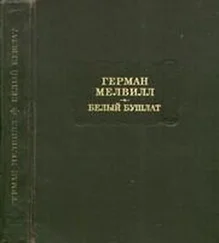Герман Мелвилл - The Piazza Tales
Здесь есть возможность читать онлайн «Герман Мелвилл - The Piazza Tales» — ознакомительный отрывок электронной книги совершенно бесплатно, а после прочтения отрывка купить полную версию. В некоторых случаях можно слушать аудио, скачать через торрент в формате fb2 и присутствует краткое содержание. Год выпуска: 2014, Издательство: epubBooks Classics, Жанр: Классическая проза, на английском языке. Описание произведения, (предисловие) а так же отзывы посетителей доступны на портале библиотеки ЛибКат.
- Название:The Piazza Tales
- Автор:
- Издательство:epubBooks Classics
- Жанр:
- Год:2014
- ISBN:нет данных
- Рейтинг книги:3 / 5. Голосов: 1
-
Избранное:Добавить в избранное
- Отзывы:
-
Ваша оценка:
- 60
- 1
- 2
- 3
- 4
- 5
The Piazza Tales: краткое содержание, описание и аннотация
Предлагаем к чтению аннотацию, описание, краткое содержание или предисловие (зависит от того, что написал сам автор книги «The Piazza Tales»). Если вы не нашли необходимую информацию о книге — напишите в комментариях, мы постараемся отыскать её.
The Piazza Tales — читать онлайн ознакомительный отрывок
Ниже представлен текст книги, разбитый по страницам. Система сохранения места последней прочитанной страницы, позволяет с удобством читать онлайн бесплатно книгу «The Piazza Tales», без необходимости каждый раз заново искать на чём Вы остановились. Поставьте закладку, и сможете в любой момент перейти на страницу, на которой закончили чтение.
Интервал:
Закладка:
My horse hitched low his head. Red apples rolled before him; Eve's apples; seek–no–furthers. He tasted one, I another; it tasted of the ground. Fairy land not yet, thought I, flinging my bridle to a humped old tree, that crooked out an arm to catch it. For the way now lay where path was none, and none might go but by himself, and only go by daring. Through blackberry brakes that tried to pluck me back, though I but strained towards fruitless growths of mountain–laurel; up slippery steeps to barren heights, where stood none to welcome. Fairy land not yet, thought I, though the morning is here before me.
Foot–sore enough and weary, I gained not then my journey's end, but came ere long to a craggy pass, dipping towards growing regions still beyond. A zigzag road, half overgrown with blueberry bushes, here turned among the cliffs. A rent was in their ragged sides; through it a little track branched off, which, upwards threading that short defile, came breezily out above, to where the mountain–top, part sheltered northward, by a taller brother, sloped gently off a space, ere darkly plunging; and here, among fantastic rocks, reposing in a herd, the foot–track wound, half beaten, up to a little, low–storied, grayish cottage, capped, nun–like, with a peaked roof.
On one slope, the roof was deeply weather–stained, and, nigh the turfy eaves–trough, all velvet–napped; no doubt the snail–monks founded mossy priories there. The other slope was newly shingled. On the north side, doorless and windowless, the clap–boards, innocent of paint, were yet green as the north side of lichened pines or copperless hulls of Japanese junks, becalmed. The whole base, like those of the neighboring rocks, was rimmed about with shaded streaks of richest sod; for, with hearth–stones in fairy land, the natural rock, though housed, preserves to the last, just as in open fields, its fertilizing charm; only, by necessity, working now at a remove, to the sward without. So, at least, says Oberon, grave authority in fairy lore. Though setting Oberon aside, certain it is, that, even in the common world, the soil, close up to farm–houses, as close up to pasture rocks, is, even though untended, ever richer than it is a few rods off—such gentle, nurturing heat is radiated there.
But with this cottage, the shaded streaks were richest in its front and about its entrance, where the ground–sill, and especially the doorsill had, through long eld, quietly settled down.
No fence was seen, no inclosure. Near by—ferns, ferns, ferns; further—woods, woods, woods; beyond—mountains, mountains, mountains; then—sky, sky, sky. Turned out in aerial commons, pasture for the mountain moon. Nature, and but nature, house and, all; even a low cross–pile of silver birch, piled openly, to season; up among whose silvery sticks, as through the fencing of some sequestered grave, sprang vagrant raspberry bushes—willful assertors of their right of way.
The foot–track, so dainty narrow, just like a sheep–track, led through long ferns that lodged. Fairy land at last, thought I; Una and her lamb dwell here. Truly, a small abode—mere palanquin, set down on the summit, in a pass between two worlds, participant of neither.
A sultry hour, and I wore a light hat, of yellow sinnet, with white duck trowsers—both relics of my tropic sea–going. Clogged in the muffling ferns, I softly stumbled, staining the knees a sea–green.
Pausing at the threshold, or rather where threshold once had been, I saw, through the open door–way, a lonely girl, sewing at a lonely window. A pale–cheeked girl, and fly–specked window, with wasps about the mended upper panes. I spoke. She shyly started, like some Tahiti girl, secreted for a sacrifice, first catching sight, through palms, of Captain Cook. Recovering, she bade me enter; with her apron brushed off a stool; then silently resumed her own. With thanks I took the stool; but now, for a space, I, too, was mute. This, then, is the fairy–mountain house, and here, the fairy queen sitting at her fairy window.
I went up to it. Downwards, directed by the tunneled pass, as through a leveled telescope, I caught sight of a, far–off, soft, azure world. I hardly knew it, though I came from it.
"You must find this view very pleasant," said I, at last.
"Oh, sir," tears starting in her eyes, "the first time I looked out of this window, I said 'never, never shall I weary of this.'"
"And what wearies you of it now?"
"I don't know," while a tear fell; "but it is not the view, it is Marianna."
Some months back, her brother, only seventeen, had come hither, a long way from the other side, to cut wood and burn coal, and she, elder sister, had accompanied, him. Long had they been orphans, and now, sole inhabitants of the sole house upon the mountain. No guest came, no traveler passed. The zigzag, perilous road was only used at seasons by the coal wagons. The brother was absent the entire day, sometimes the entire night. When at evening, fagged out, he did come home, he soon left his bench, poor fellow, for his bed; just as one, at last, wearily quits that, too, for still deeper rest. The bench, the bed, the grave.
Silent I stood by the fairy window, while these things were being told.
"Do you know," said she at last, as stealing from her story, "do you know who lives yonder?—I have never been down into that country—away off there, I mean; that house, that marble one," pointing far across the lower landscape; "have you not caught it? there, on the long hill–side: the field before, the woods behind; the white shines out against their blue; don't you mark it? the only house in sight."
I looked; and after a time, to my surprise, recognized, more by its position than its aspect, or Marianna's description, my own abode, glimmering much like this mountain one from the piazza. The mirage haze made it appear less a farm–house than King Charming's palace.
"I have often wondered who lives there; but it must be some happy one; again this morning was I thinking so."
"Some happy one," returned I, starting; "and why do you think that? You judge some rich one lives there?"
"Rich or not, I never thought; but it looks so happy, I can't tell how; and it is so far away. Sometimes I think I do but dream it is there. You should see it in a sunset."
"No doubt the sunset gilds it finely; but not more than the sunrise does this house, perhaps."
"This house? The sun is a good sun, but it never gilds this house. Why should it? This old house is rotting. That makes it so mossy. In the morning, the sun comes in at this old window, to be sure—boarded up, when first we came; a window I can't keep clean, do what I may—and half burns, and nearly blinds me at my sewing, besides setting the flies and wasps astir—such flies and wasps as only lone mountain houses know. See, here is the curtain—this apron—I try to shut it out with then. It fades it, you see. Sun gild this house? not that ever Marianna saw."
"Because when this roof is gilded most, then you stay here within."
"The hottest, weariest hour of day, you mean? Sir, the sun gilds not this roof. It leaked so, brother newly shingled all one side. Did you not see it? The north side, where the sun strikes most on what the rain has wetted. The sun is a good sun; but this roof, in first scorches, and then rots. An old house. They went West, and are long dead, they say, who built it. A mountain house. In winter no fox could den in it. That chimney–place has been blocked up with snow, just like a hollow stump."
"Yours are strange fancies, Marianna."
"They but reflect the things."
"Then I should have said, 'These are strange things,' rather than, 'Yours are strange fancies.'"
"As you will;" and took up her sewing.
Something in those quiet words, or in that quiet act, it made me mute again; while, noting, through the fairy window, a broad shadow stealing on, as cast by some gigantic condor, floating at brooding poise on outstretched wings, I marked how, by its deeper and inclusive dusk, it wiped away into itself all lesser shades of rock or fern.
Читать дальшеИнтервал:
Закладка:
Похожие книги на «The Piazza Tales»
Представляем Вашему вниманию похожие книги на «The Piazza Tales» списком для выбора. Мы отобрали схожую по названию и смыслу литературу в надежде предоставить читателям больше вариантов отыскать новые, интересные, ещё непрочитанные произведения.
Обсуждение, отзывы о книге «The Piazza Tales» и просто собственные мнения читателей. Оставьте ваши комментарии, напишите, что Вы думаете о произведении, его смысле или главных героях. Укажите что конкретно понравилось, а что нет, и почему Вы так считаете.








